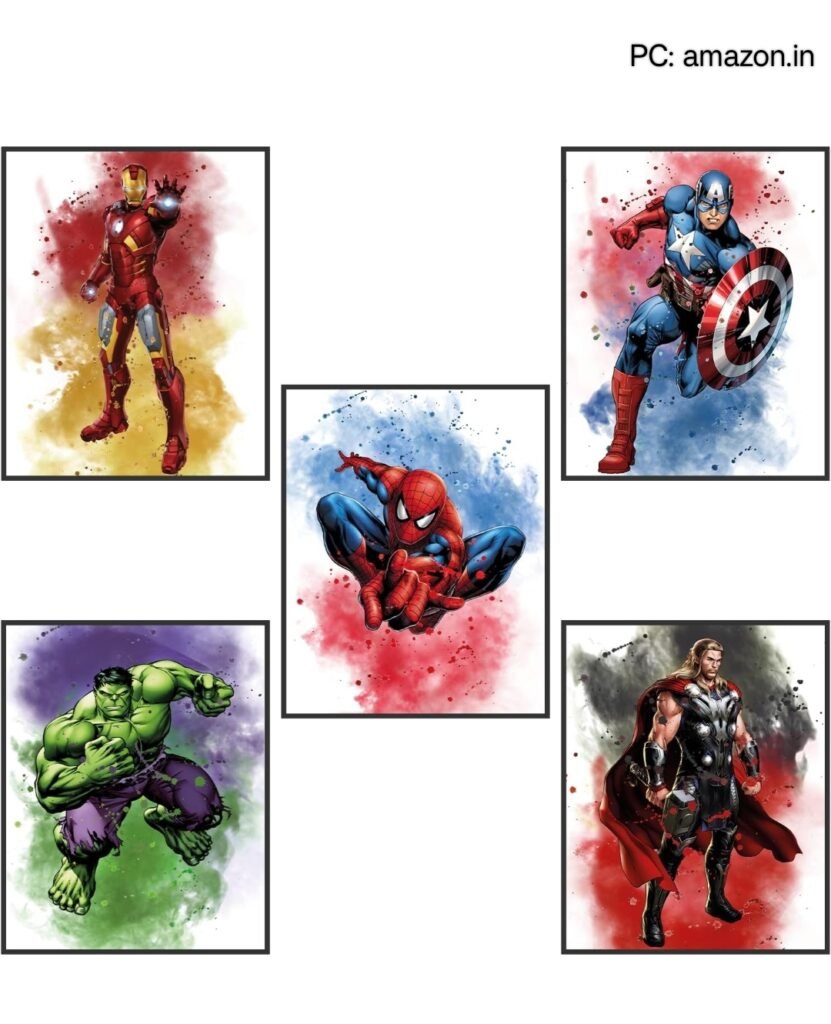In the field of intellectual property, trademarks serve as an important protector of brand identity. They are legally recognized signs, terms, or phrases that represent a corporation or its products, differentiating them from its competitors. However, in rare situations when multiple companies or parties seek to share joint ownership over a phrase, it could lead to a difficult situation. Such is the case of DC Comics and Marvel Characters sharing joint ownership over the trademark for the term “Superhero” for over six decades. Being rivals in the market, this has allowed the entities to collaborate on several joint ventures and crossover media initiatives unveiling their ability to coexist in such a competitive industry. In furtherance of this, in situations wherein a trademark is used without permission, it could cause a significant threat to a company by causing confusion or diluting the brand’s identity.
The comic book industry was shaken when the case of Superbabies Limited v. Marvel Characters, Inc. and DC Comics challenged nearly six decades of trademark protection over the phrase “Superhero”. As this trademark dispute unravels, it is essential to know the parties involved and their importance in the comic book industry. Superbabies Limited (Petitioner) is a smaller and independent publisher who has promoted a brand based on the term “Superbabies”. The Petitioner aims to safeguard its brand and carve out a niche in the industry. They pursued the “Superbabies” trademark believing it is different and does not infringe on any pre-existing intellectual property.
Whereas, DC Comics and Marvel Characters are two of the biggest comic book publishers. DC comics, best known for its famous characters such as Superman, Batman, and Wonder Woman, has been a formidable force in the entertainment industry for almost a century. Similarly, Marvel Characters, Inc., a subsidiary of Marvel Entertainment, owns the rights to a large number of popular superhero characters, including Spider-Man, Iron Man, and the Avengers. Over the years, both the comic giants have been vigilant in safeguarding their intellectual property, owning trademarks not just on character names but also on certain symbols and phrases.
This recent judgement, that has resulted in the loss of the joint trademark over the word “Superhero” interferes with the longstanding collaboration between DC and Marvel and further raises grave questions regarding the future of superhero branding and the rights of all parties involved. For years, DC and Marvel shared a trademark for this term, wherein they used to describe their characters and trademarks. In light of this judgement, it is important to highlight the legal ruse that led to this significant outcome. DC Comics filed an opposition against the Petitioners claiming that the trademark “Superbabies” was likely to cause confusion with the several existing marks owned by DC Comic. In response, the Petitioner filed a petition to cancel the jointly owned “Superhero” trademark stating that the mark was generic and was no longer serving as a distinctive source of goods and services. The Petitioners argued that the public does not associate the term “Superhero” with any single brand or character. They emphasized that “Superhero” is a generic term that people widely recognize, encompassing any individual with special abilities, rather than being linked to a specific entity. Furthermore, the joint ownership of the mark by direct competitors within the same field compromises its effectiveness as a trademark.
The dispute focused on a crucial legal issue: The validity of the “Superhero” trademark. The judgement raised questions about whether Marvel and DC could maintain their joint trademark on the word “Superhero.”
The Court’s ruling had far-reaching consequences for the word “Superhero”. The Court determined that “Superhero” had become a generic term in popular culture, widely used by creators across various media. Following the filing of the petition by the Petitioners, DC was given an opportunity to respond but instead, they requested an extension to prepare their response. Although the Court granted this extension, DC ultimately did not submit a reply to the petition. This lack of action resulted in the Court’s decision to revoke the trademark jointly held by DC and Marvel. As a result, Marvel and DC could no longer claim exclusive rights to the term “Superhero”.
The loss of this joint trademark over the term “Superhero” will more than likely lead to increased competition and creativity within the superhero genre. The ruling indicates that the term lacks distinctiveness required for trademark protection, thereby levelling the playing field for other creators in the industry. This decision serves as a timely reminder that, in an industry known for its intricate tapestry of characters and themes, the line between originality and imitation can sometimes be blurred. It not only addressed specific infringement allegations but also transformed the landscape of trademark law in the comic book industry. The judgement emphasized the importance of individuality in trademarks and prompted a reconsideration of how the creative sector addresses intellectual property issues. As Marvel and DC adjust to this new reality, the ruling is likely to impact the future of superhero branding and innovation.
Authors: Vamika Gidwani & Malvika Pandey

